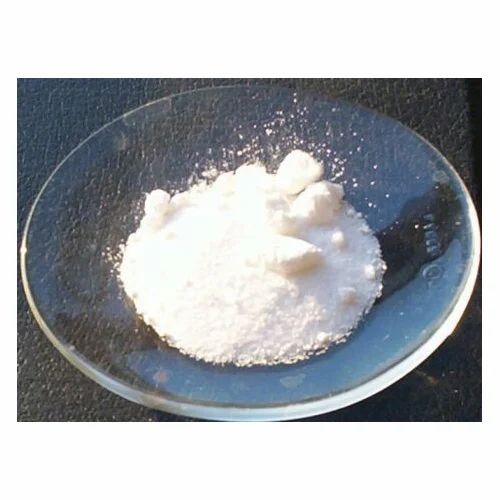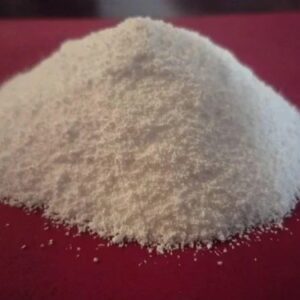Calcium Sulphate Anhydrous: The Comprehensive Guide
Calcium sulphate anhydrous, with the chemical formula CaSO4CaSO_4, is a versatile and widely used compound known for its diverse applications in various industries. This white, crystalline powder is the dehydrated form of calcium sulfate, distinguished by its lack of water molecules. Calcium sulphate anhydrous plays a crucial role in construction, agriculture, food processing, and pharmaceuticals, making it an essential material for professionals across multiple sectors. In this detailed product description, we will explore the properties, applications, benefits, and safety considerations of calcium sulphate anhydrous, highlighting its significance and versatility.
Chemical Properties
Composition and Structure
Calcium sulphate anhydrous is composed of calcium, sulfur, and oxygen. It exists as a white crystalline solid, and its molecular weight is approximately 136.14 g/mol. This compound is stable under normal conditions and has a high melting point, making it suitable for various applications.
Physical Characteristics
- Appearance: White or off-white powder
- Molecular Weight: 136.14 g/mol
- Solubility: Sparingly soluble in water; soluble in acids
- pH: Neutral
- Melting Point: Decomposes at temperatures above 1450 °C (2642 °F)
These properties contribute to the diverse applications of calcium sulphate anhydrous across different industries.
Applications of Calcium Sulphate Anhydrous
1. Construction Industry
Calcium sulphate anhydrous is widely used in the construction industry as a key ingredient in the production of gypsum plaster and drywall. Its properties make it ideal for creating strong, durable building materials that are essential for modern construction. It serves as a binder in plaster and is used in cement production, improving the strength and workability of concrete.
2. Agriculture
In agriculture, calcium sulphate anhydrous is used as a soil amendment to improve soil structure and fertility. It helps to supply essential calcium and sulfur nutrients, promoting healthy plant growth. This compound is particularly beneficial in alkaline soils, where it can help to reduce soil pH, improving nutrient availability for crops.
3. Food Industry
Calcium sulphate anhydrous is utilized in the food industry as a food additive and firming agent. It is commonly found in tofu production, where it acts as a coagulant, helping to provide texture and stability. Additionally, it is used in various food products to enhance calcium content and improve overall quality.
4. Pharmaceuticals
In the pharmaceutical sector, calcium sulphate anhydrous is used as an excipient in drug formulations. Its properties make it suitable for use in tablets and capsules, where it serves as a filler and stabilizer. It is also employed in dental applications for making molds and casts due to its rapid setting time and compatibility with oral tissues.
5. Chemical Manufacturing
Calcium sulphate anhydrous is used in the production of various chemicals, including calcium sulfide and other sulfur compounds. Its stability and reactivity make it an essential raw material in chemical manufacturing processes.
6. Cosmetics
In the cosmetics industry, calcium sulphate anhydrous is incorporated into formulations as a texturizer and absorbent. It helps improve the consistency and stability of creams, lotions, and powders, contributing to a better user experience.
Advantages of Using Calcium Sulphate Anhydrous
1. Versatility
One of the primary advantages of calcium sulphate anhydrous is its versatility. Its applications span across multiple industries, making it a valuable resource for manufacturers and professionals seeking reliable solutions.
2. Natural Origin
Calcium sulphate is naturally occurring, found in mineral deposits such as gypsum. Its natural origin appeals to consumers and industries looking for sustainable and environmentally friendly materials.
3. Cost-Effectiveness
Calcium sulphate anhydrous is relatively inexpensive compared to other industrial chemicals. Its availability and low cost make it an economical choice for various applications, helping businesses maintain profitability.
4. Improved Soil Quality
In agriculture, calcium sulphate anhydrous enhances soil structure and fertility, which can lead to increased crop yields and healthier plants. This makes it an essential tool for farmers looking to improve productivity.
How to Use Calcium Sulphate Anhydrous
1. In Construction
When using calcium sulphate anhydrous in construction applications:
- Dosage: Follow industry standards for the appropriate amount to use in plaster and cement formulations, typically ranging from 5% to 15% of the total mix.
- Mixing: Ensure thorough mixing with other materials to achieve the desired strength and workability in the final product.
2. In Agriculture
For agricultural applications:
- Soil Amendment: Apply calcium sulphate anhydrous based on soil tests to determine the right amount needed for optimal plant growth. Typical application rates range from 100 to 300 kg per hectare.
- Monitoring: Regularly assess soil health and crop performance to adjust application rates as necessary.
3. In Food Processing
When incorporating calcium sulphate anhydrous into food products:
- Usage: Typically, 0.5% to 2% of calcium sulphate is added as a coagulant in tofu production and other food applications.
- Quality Control: Monitor food products for consistency and quality to ensure proper texture and stability.
4. In Pharmaceuticals
For pharmaceutical applications:
- Formulation: Use calcium sulphate anhydrous as a filler or stabilizer in tablets and capsules at recommended dosages, typically around 5% to 20%.
- Testing: Conduct stability tests to ensure the integrity of formulations over time.
5. In Chemical Manufacturing
When using calcium sulphate anhydrous in chemical production:
- Preparation: Follow established protocols for using calcium sulphate in reactions, ensuring accurate measurements for reliable results.
- Quality Control: Regularly monitor the quality of chemical products to ensure compliance with industry standards.
6. In Cosmetics
For cosmetic applications:
- Incorporation: Use calcium sulphate anhydrous at concentrations of 1% to 5% to improve texture and stability in formulations.
- Testing: Perform stability tests to ensure formulations maintain their integrity and performance over time.
Safety and Handling
1. Toxicity
Calcium sulphate anhydrous is generally considered safe for use in food and pharmaceutical applications. However, excessive inhalation of dust can lead to respiratory irritation.
2. Protective Measures
When handling calcium sulphate anhydrous, it is essential to:
- Wear Protective Gear: Use gloves, goggles, and appropriate protective clothing to minimize exposure risks.
- Ensure Ventilation: Work in a well-ventilated area to avoid inhaling dust.
3. Storage
Store calcium sulphate anhydrous in a cool, dry place away from direct sunlight and moisture. Ensure that containers are tightly sealed to prevent contamination and degradation.
Environmental Considerations
Calcium sulphate anhydrous is considered environmentally friendly, as it is derived from natural sources. However, proper disposal methods should be followed to minimize any potential impact. Always adhere to local regulations regarding chemical waste disposal.
Conclusion
Calcium sulphate anhydrous is a versatile and essential compound widely used in construction, agriculture, food processing, pharmaceuticals, and more. Its unique properties, such as stability and natural origin, make it an invaluable resource for professionals across various industries.
When purchasing calcium sulphate anhydrous, choose reputable suppliers that provide high-quality products and detailed safety data sheets. Understanding its applications, benefits, and safety measures will help you maximize the potential of this remarkable compound in your projects.
Whether you’re a contractor seeking strong and durable building materials, an agricultural expert aiming to improve soil health, or a manufacturer looking to enhance product quality, calcium sulphate anhydrous can meet your needs. Embrace the advantages of this compound and unlock new possibilities in your field!





Reviews
There are no reviews yet.